 Melissa Anderson
Melissa Anderson
Of family and fauna: a young protagonist at the center of Lila Avilés’s latest film navigates a day of domestic chaos and festivities.
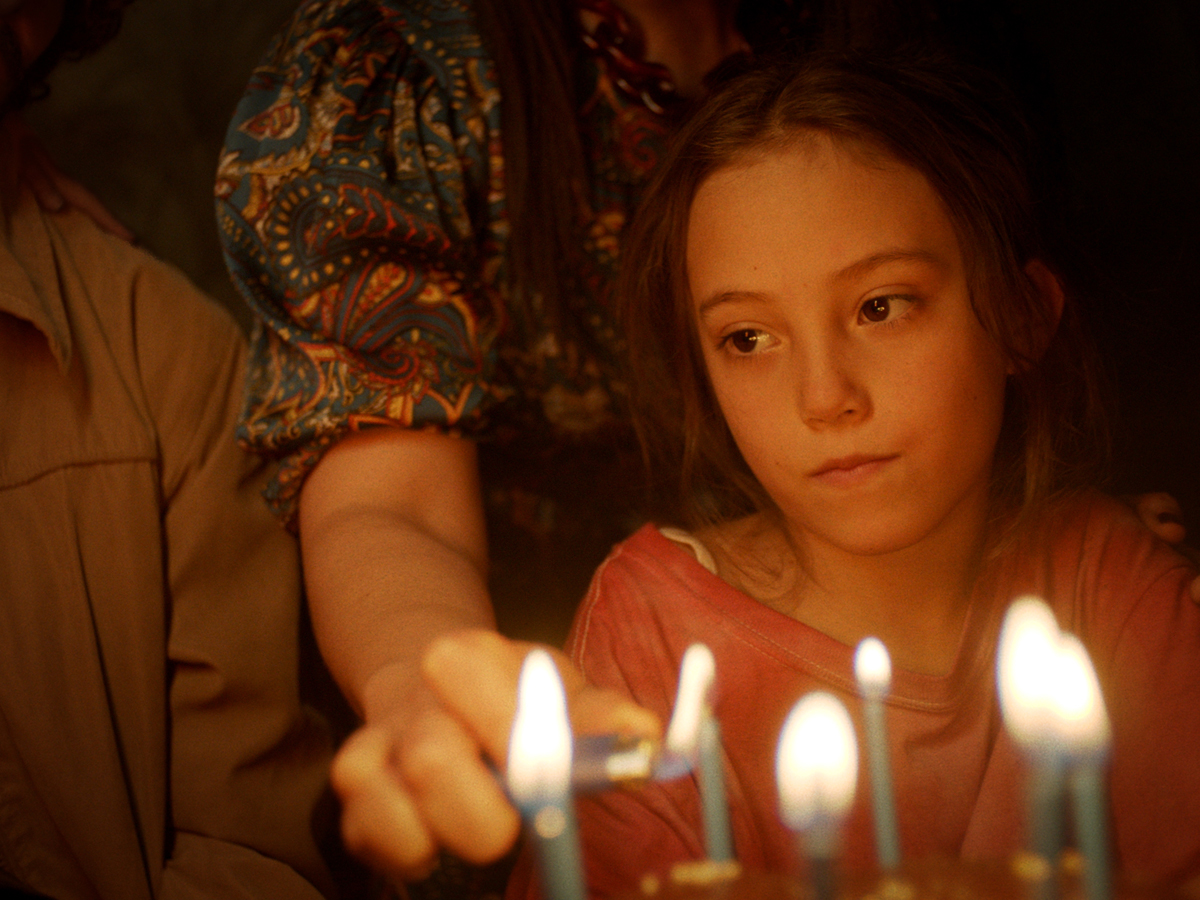
Naíma Sentíes as Sol in Tótem. Courtesy Film Forum.
Tótem, written and directed by Lila Avilés, now playing at Film Forum, 209 West Houston Street, New York City
• • •
In her two features to date, Mexican filmmaker Lila Avilés has focused on marginalized protagonists, though each lacks power owing to highly different circumstances. Evelia (Gabriela Cartol), the twenty-four-year-old title character of The Chambermaid (2018), for instance, scours toilets and fluffs duvets at a luxe hotel in Mexico City—arduous, repetitive labor for which she is meagerly compensated, her presence icily greeted (if she’s acknowledged at all) by the wealthy guests. The sprawling family drama Tótem is often portrayed through the point of view of seven-year-old Sol (Naíma Sentíes), the beloved only child of artist parents who is further doted on by a boisterous extended clan of aunts, uncles, cousins, grandparents, and family friends. Yet, like all children, she must obey rules that seem wildly unjust to her and is subject to the baffling caprices of adults.
Its action confined to one day, Tótem is also mostly limited to one setting. In the opening segment, Sol and her mother, Lucía (Iazua Larios), who has an unspecified job in theater, are en route to the home of the child’s paternal grandfather, Roberto (Alberto Amador). The banter in the car between Lucía and her daughter, plus the helium balloons in the backseat and Sol’s rainbow wig, give every indication that they’re on their way to a birthday party. Which they are, but the festivity also doubles as a preliminary wake for the celebrant: Tona (Mateo García Elizondo), Sol’s father, a painter, is dying of cancer; this trip around the sun will likely be his last.
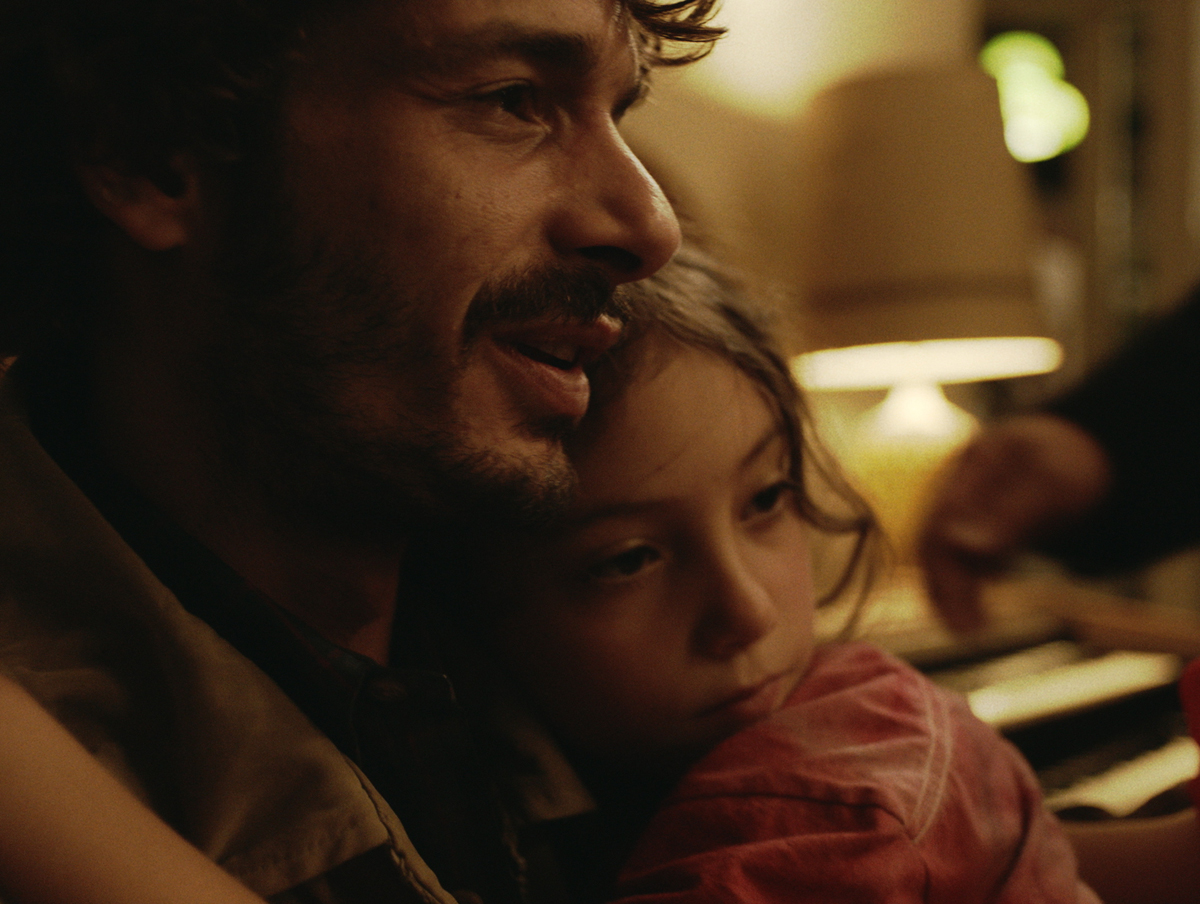
Mateo García Elizondo as Tona and Naíma Sentíes as Sol in Tótem. Courtesy Film Forum.
Avilés, for the most part, keeps this dire scenario free of sentimentality—a feat all the more impressive considering that the story is relayed largely through a child’s eyes. The constant activity, usually quotidian but still fascinating, in the paterfamilias’s multigenerational residence helps keep the mawkishness at bay. Viewers are pleasingly dropped into the middle of domestic chaos, the low-key mayhem underscored by cinematographer Diego Tenorio’s handheld camerawork. We are left to puzzle out in the film’s first thirty minutes who exactly is living at Roberto’s house and what their relationship is to Tona. The primary hosts of the party, we gradually learn, are the bedridden man’s two older, squabbling sisters: Alejandra (Marisol Gasé), first introduced dyeing her hair and rarely without a cigarette or vape pen, and Nuri (Montserrat Marañon), prone to tippling and mother to preschooler Esther (Saori Gurza), who calmly submits to mamá’s byzantine, fire-hazardous treatment for earaches. Roberto, a psychotherapist—and a widower who lost his wife to cancer; he may have survived the disease himself, as suggested by the electrolarynx he must use to speak—prefers the solitude of his greenhouse when he isn’t seeing clients in his home office. (The analysands don’t appear to mind, somewhat straining credibility, that the doors to this room are left open, allowing Sol to espy one woman’s aria of self-recrimination.)
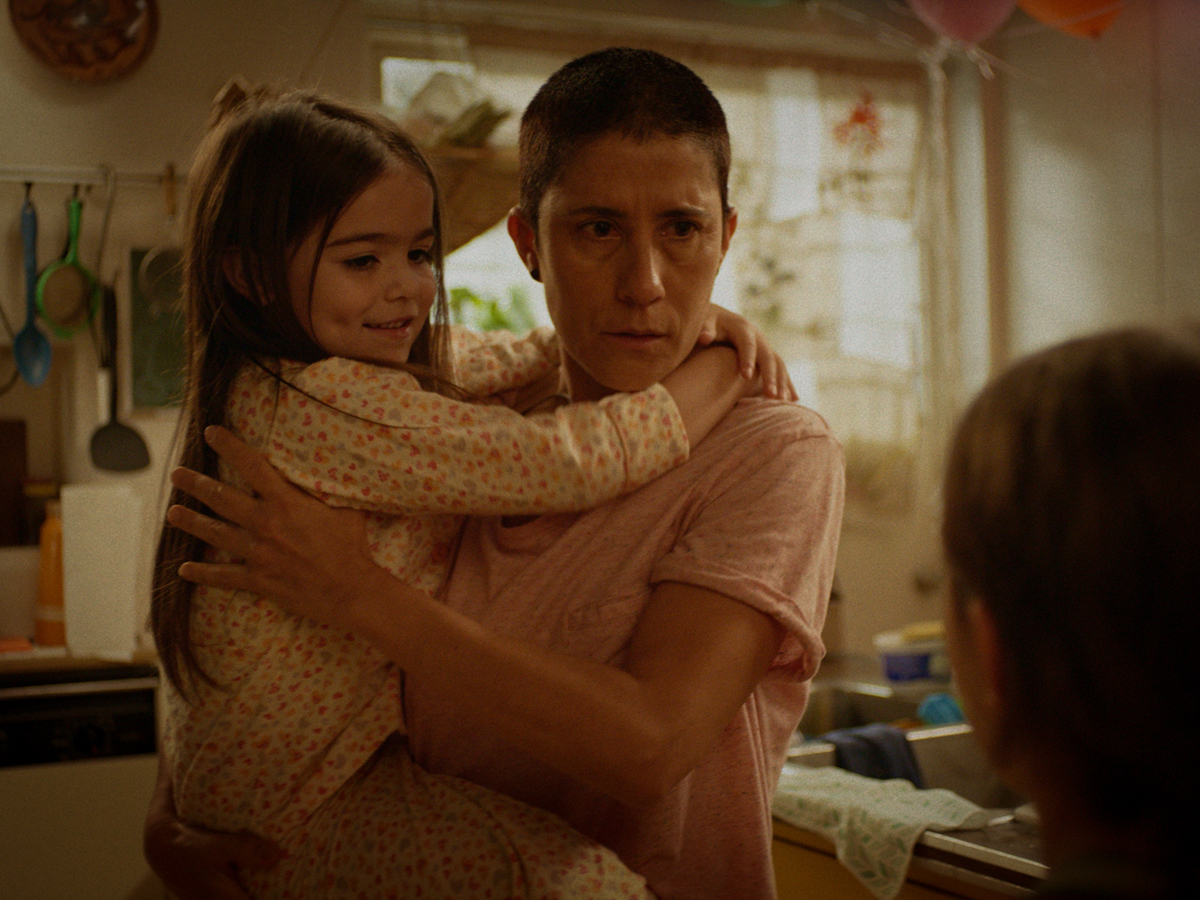
Saori Gurza as Esther and Montserrat Marañon as Nuri in Tótem. Courtesy Film Forum.
A woman who could easily be mistaken for another family member turns out to be an employee: Cruz (Teresita Sánchez), Tona’s devoted nurse, forbearingly reminds Alejandra that she hasn’t been paid in two weeks. (Sánchez also played one of Evelia’s coworkers in The Chambermaid; to a lesser degree, Tótem shares the earlier film’s interest in exploitative labor practices.) Tona’s siblings augment Cruz’s established medical practices with more nontraditional ones. Alejandra hires a clairvoyant to purge the house of negative energies (an episode that stretches on a mite too long); Tona’s brother, Napo (Juan Francisco Maldonado), who arrives around the film’s midpoint—as do Sol’s two older cousins, the children of Alejandra—leads the family in a session of “quantum therapy,” beseeching everyone to close their eyes and “focus on the idea of Tona feeling better.”
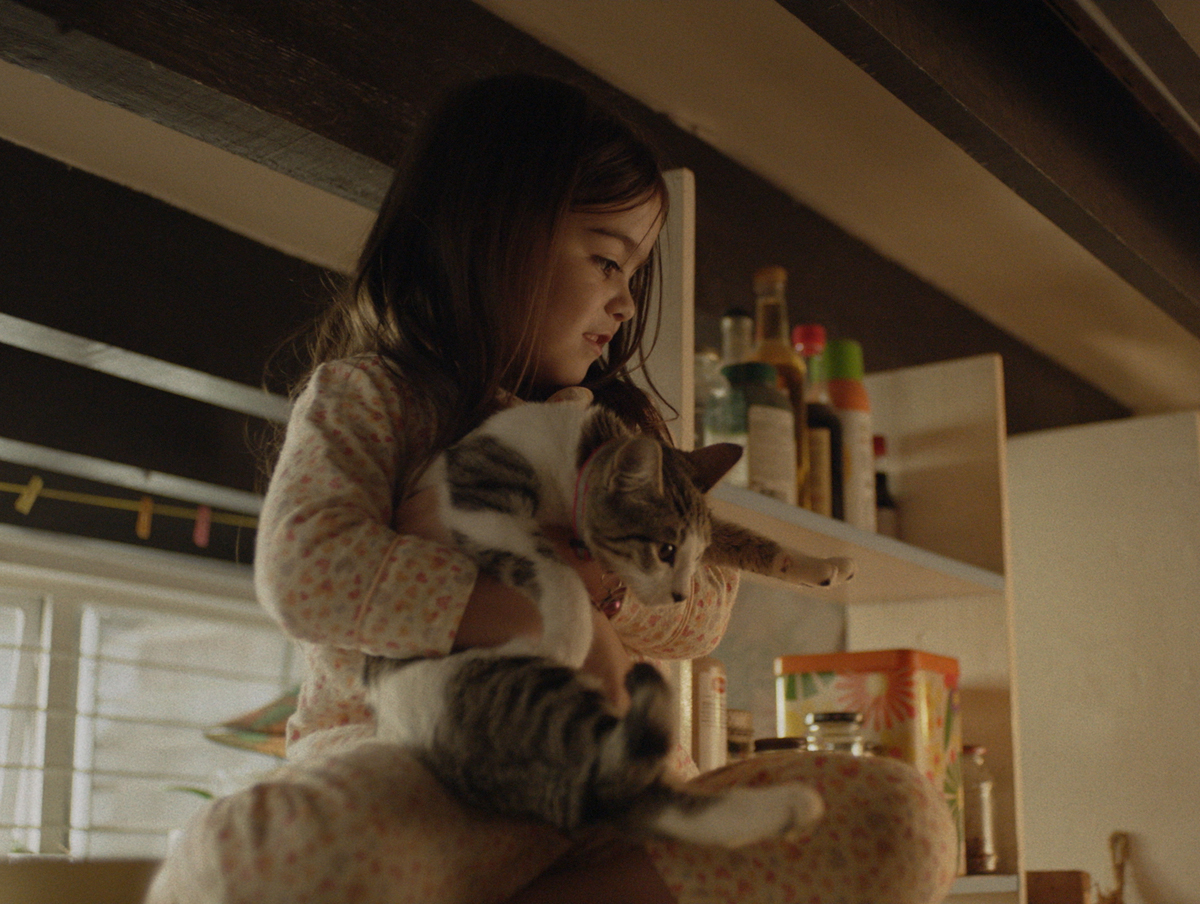
Saori Gurza as Esther in Tótem. Courtesy Film Forum.
Amid this scrum and shambolic activity is a wide range of fauna, each creature warranting its own moment of screen time: a cat, two dogs, ants, a praying mantis, bees, pigeons, and the snails that enrapture Sol, who mischievously puts the slimy things on the artwork in the hallway. Those paintings might have been made by Tona. If so, Sol’s action could be thought of as a tiny gesture of protest, a way of expressing the frustration of being told repeatedly—by her aunts, by Cruz—that she can’t say hello to her dad, who they insist must rest. Whiling away the interminable stretch of time until the party, the child tries to keep herself busy and removed from the hurly-burly. But even her attempts to be as unobtrusive as possible are met with adult disapproval. The fort Sol has built for herself from sofa cushions in an unoccupied room earns a slight scolding from Alejandra, who gently upbraids the girl for making a mess when the house needs to be put in order.
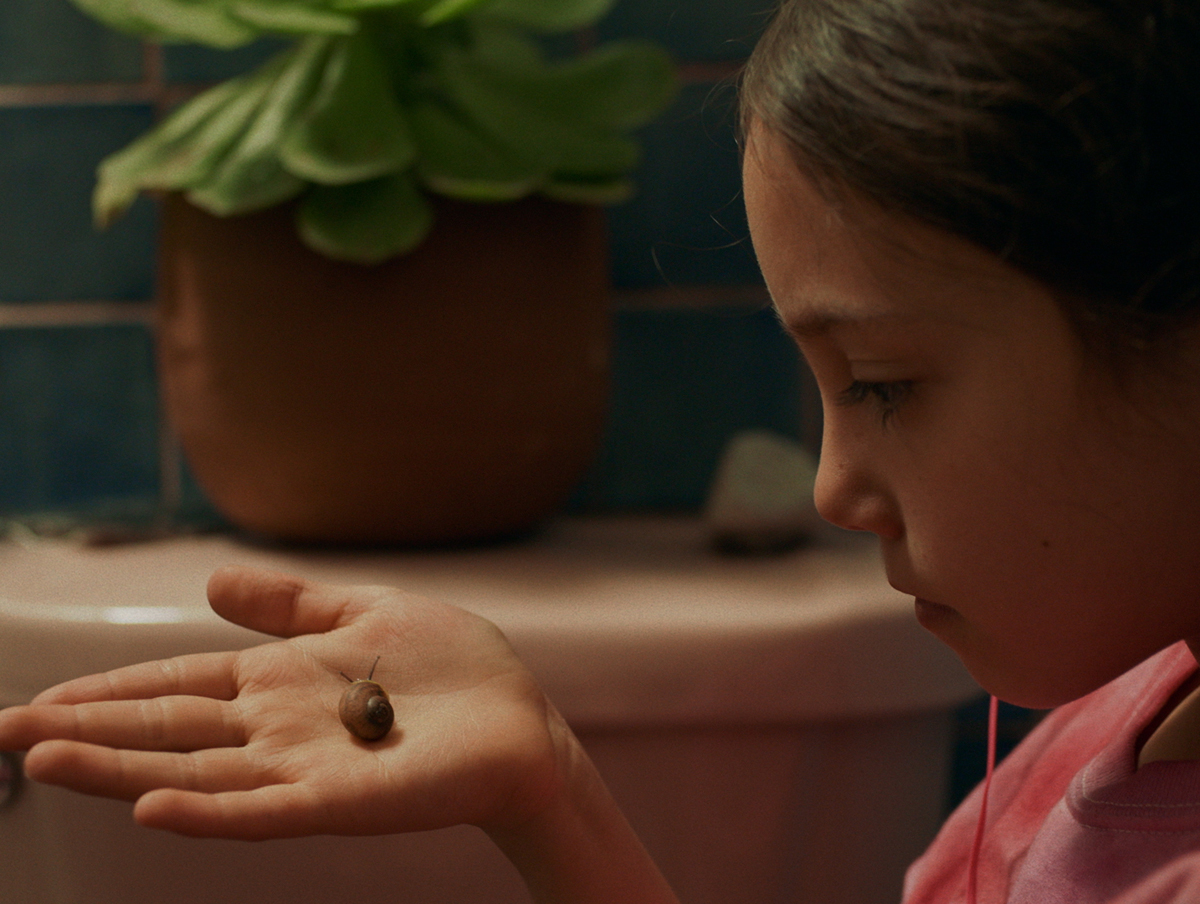
Naíma Sentíes as Sol in Tótem. Courtesy Film Forum.
A compassionate, sharply observed film, Tótem demonstrates this immortal line from Lillian Gish’s character in The Night of the Hunter: “It’s a hard world for little things.” Yet the adults who surround Sol, as flawed or ridiculous as they may be, are never vilified, never presented as anything less than benevolent. Death is imminent for Tona, a brutal fact that those who surround him more or less equably accept. For as much as I admire Avilés’s aversion to histrionics, at times Tótem seems too serene, too resistant to explore darker, danker impulses.
My disappointment may have stemmed from having revisited, just four days before seeing Tótem, another ensemble drama about a middle-class clan that features both a dying relative in a multigenerational family home and an elementary-schooler as a central character: Edward Yang’s Yi Yi, from 2000. While that movie spans several months as opposed to the roughly twelve hours covered in Avilés’s, any one segment from Yi Yi throbs with adult anguish and sorrow, with the bewilderment of childhood and adolescence. There’s no question that Tótem, a film about death, stirs to life. But it does so with a faint pulse.
Melissa Anderson is the film editor of 4Columns and the author of a monograph on David Lynch’s Inland Empire from Fireflies Press.